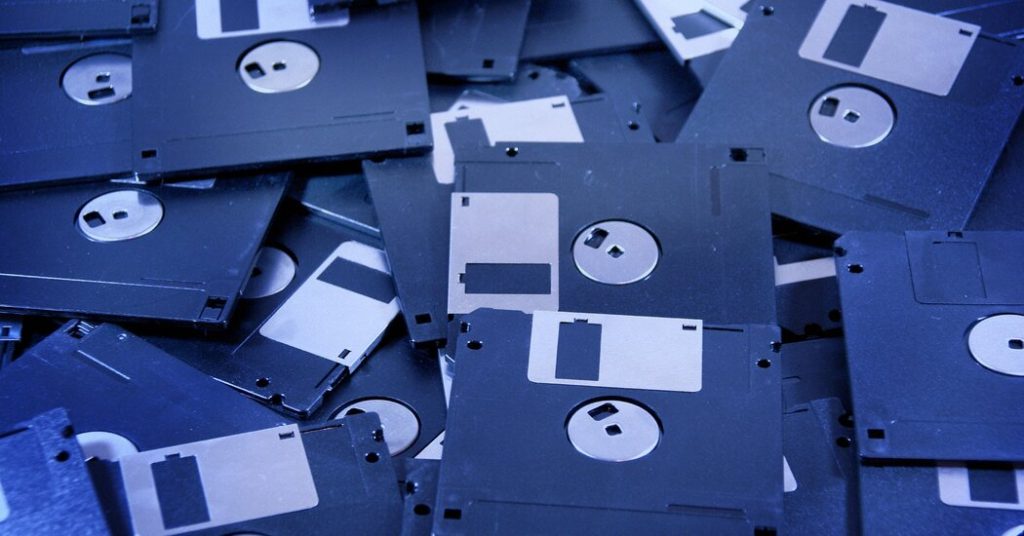Japan Bids Farewell to Floppy Disks: Embracing Modern Technology
Japan, a nation celebrated for its tech innovations and lightning-fast internet, has finally phased out the use of floppy disks for administrative purposes. This marks the end of an era for a country that has long harbored a mix of cutting-edge and retro technologies within its administrative and business practices. Here’s an in-depth look into Japan’s journey from floppy disks to modern data storage solutions, the reasons behind the protracted transition, and the implications for Japanese society and industries.
The End of Floppy Disk Era in Japan
Japan’s Prolonged Use of Floppy Disks
Despite the global move towards more sophisticated forms of data storage, Japan’s attachment to floppy disks persisted into the 21st century. This was surprising for a country known for its technological prowess. The government’s recent initiative to eliminate the mandate for floppy disks symbolizes a significant shift, urging various sectors to embrace more secure and efficient digital storage methods.
Transition to Modern Technologies
The eradication of floppy disk usage didn’t occur overnight. It followed a deliberate process spearheaded by Taro Kono, the digital minister, who launched a "war on floppy disks." This campaign aimed to revitalize Japan’s bureaucratic and industrial sectors by promoting the adoption of cutting-edge technology, thus ensuring efficiency, security, and global competitiveness.
The Persistence of Retro Technology in Japan
Cultural and Institutional Reluctance
Japan’s slow transition from floppy disks to modern digital storage solutions can be attributed to a combination of cultural and institutional factors. This includes a general reluctance towards changing longstanding practices and a sense of security associated with physical data storage. Additionally, extensive bureaucratic systems and stringent regulations have stifled technological innovation in certain areas.
Impact on Industries and Government
The reliance on outdated technology has had a nuanced impact across different sectors. While some, like the traditional textile industry in Kyoto, view floppy disks as irreplaceable for their specific needs, others, like Higo Bank, face operational inefficiencies and challenges in persuading their clients to switch to modern alternatives. Likewise, the government’s slow adoption of digital solutions has led to inefficiencies and increased vulnerability to data security risks.
Modernization Efforts and Challenges
Switching to Digital Solutions
The move away from floppy disks is part of a broader initiative to modernize Japan’s digital infrastructure. This includes embracing cloud storage, enhancing cybersecurity measures, and facilitating a smoother digital transition for various sectors. However, the path to modernization is fraught with challenges, such as ensuring data privacy and overcoming resistance to change among the populace and businesses.
Overcoming Technological Inertia
A key challenge in Japan’s digital transformation is overcoming technological inertia. This requires not only government incentives and regulatory changes but also a cultural shift towards embracing new technologies. Educating businesses and the public about the benefits of modern digital solutions and providing support during the transition are crucial for success.
The Road Ahead: Japan’s Digital Transformation
Embracing the Future
Japan’s farewell to floppy disks represents a significant milestone in its journey towards digital transformation. It underscores the importance of adopting modern technology to remain competitive in the global landscape. The focus now shifts to other outdated technologies, such as fax machines, indicating a comprehensive strategy to modernize Japan’s digital infrastructure.
Implications for Japanese Society and Industries
The phasing out of floppy disks is expected to have far-reaching implications for Japanese society and diverse industries. It not only enhances operational efficiency and data security but also positions Japan as a future-ready nation. Embracing digital solutions promises to drive innovation, streamline government and business operations, and improve the quality of life for its citizens.
FAQ
Q: Why did Japan continue to use floppy disks for so long?
A: Japan’s prolonged use of floppy disks can be attributed to cultural and institutional reluctance to change, the perceived security of physical data storage, and still-functional legacy technologies.
Q: How will the phasing out of floppy disks affect Japanese businesses?
A: The move is expected to enhance efficiency, reduce operational costs, and encourage the adoption of secure and scalable digital storage solutions among Japanese businesses.
Q: Are there any sectors that might face difficulties due to this transition?
A: Sectors deeply entrenched in legacy technologies, such as the traditional textile industry, may face challenges adapting to new digital solutions due to the need for significant shifts in their operational practices.
Q: What are the next steps for Japan’s digital transformation?
A: Japan aims to address and retire other outdated technologies like fax machines, further modernizing its digital landscape, improving cybersecurity, and promoting efficient, paperless operations across all sectors.
Conclusion
Japan’s elimination of floppy disk mandates marks a pivotal turning point in its embrace of modern technology. This transition reflects a broader commitment to digital transformation, addressing both the opportunities and challenges of moving away from outdated practices. By fostering a culture of innovation and openness to change, Japan sets a precedent for balancing tradition with technological advancement, ensuring its position as a leader in the global digital economy.
